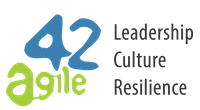The Tragic Collapse of Work Ethic: How Modern Life is Killing our Drive to Succeed
During my recent travels for business around the world, I’ve noticed something that struck me in all places I visited. Let me be provocative about it.
Introduction: Are you tired of people around you losing the passion for work? Everywhere you look, it seems like employees are more disenchanted with their jobs than ever before. From restaurants struggling to find qualified service staff to employees taking more sick leave than usual, it’s clear that something is wrong.
But what could be causing this global shift in work ethic? Despite vast cultural differences across various countries and industries, the trend persists. It’s a question that demands our attention, and the answer may be more sinister than you think.

The Balance between Work and Life: Walking a fine line
For decades now, we’ve been discussing and acknowledging the importance of finding a healthy balance between personal and professional commitments. But with modern technology and changes in workplace culture, this balance has become more elusive than ever before.
In the past, employees were often expected to work long hours, sacrificing their personal time and well-being for the sake of their jobs.
We saw companies prioritizing profits over people. Forcing their workers to rank work over everything else, including their mental and physical health.
Today, the tables have turned, and many employees have gone to the opposite extreme, prioritizing their personal lives over their careers, and money seems the only thing important and motivational – if at all.
Agile Methodologies: A Cure not just a band aid
As organizations recognize the benefits of having employees who feel fulfilled in their personal lives, the concept of work-life balance has gained more traction. Agile methodologies, such as ORGANIC agility, Scrum, Kanban, and Lean, have played an important role in enabling organizations to become more resilient and create a better place to work by fostering a different mindset and culture.
Agility emphasizes collaboration, continuous improvement, and flexibility, and can create a culture of transparency, trust, and respect. It enables teams to prioritize and manage their workload more effectively, promote autonomy and self-management, and empower employees to take ownership of their work and manage their personal lives, leading to increased job satisfaction and overall well-being.
But let’s be clear: Agile methodologies are not successful when used as a band aid. They’re more of a cure which results in resilience. Companies need to address the root causes of the problem, which include outdated work cultures, a lack of leadership and initiate the right change.
Leadership: The Missing Link
To restore balance, we need a fresh perspective on leadership. One approach that shows promise is “Building Leadership In,” which emphasizes creating a workspace that’s built on trust, empowerment, and collaboration. Leaders who take this approach understand their team members and work with them to create an environment that fosters innovation and success.

But it’s not just leaders who need to adopt this mindset. Every employee, regardless of their position, should develop leadership qualities like accountability and initiative. When employees feel empowered to take on leadership roles, it creates a culture and mindset of collaboration that brings success to both the workforce and the organization. And let’s be clear, success and the feeling of being a part of it is the biggest driver for individuals. So, let’s get leadership and empowerment right. After all, a culture that fosters accountability, initiative, and collaboration is the key to success in the modern workplace.
Education: Starting Early
In my experience promoting work-life balance through Agile methodologies and leadership is a good step in the right direction, but it’s not enough on its own. We need to start earlier, with our education systems.
Our kids in school need to learn the right value systems and develop a sense of ownership and responsibility towards their work, as well as an understanding of the importance of balancing personal and professional lives.
Or think about Universities. They also have a role to play in teaching and promoting a healthy and balanced organizational culture. And beside the fact that they should be accessible to everybody (but that is a different topic) they should encourage students to seek out and contribute to organizations that prioritizes ways of working that respects work-life balance and promotes the leadership qualities that can foster such a culture.
Conclusion
We’re facing a crisis of work ethic. People are losing the drive to work and pursue success. Instead, they’re increasingly seeking the easy way out, looking for shortcuts and quick fixes that provide instant gratification. We’re becoming a society that values laziness over hard work, and it’s time for a wake-up call.
It’s time for us to take a hard look at our priorities and start valuing work ethic once again. We need to instill a sense of pride in working and achieving success through dedication and resilience. We can’t just expect things to be handed to us on a silver platter; we need to earn them through continuous learning, work and commitment.
It’s time to reject the notion that work-life balance means working less and playing more. Instead, let’s recognize that true balance comes from finding fulfillment in both our personal and professional lives. We need to strive for excellence in all areas of our lives and set an example for the next generation.
Let’s stop making excuses for our lack of work ethic and start taking responsibility for our actions. It’s time to step up and become the leaders we were meant to be, inspiring others to work hard and achieve their dreams. Together, we can create a culture that brings the balance we all want.
Marion Eickmann, CEO agile42

This interview originally appeared on B2BOutlook.




